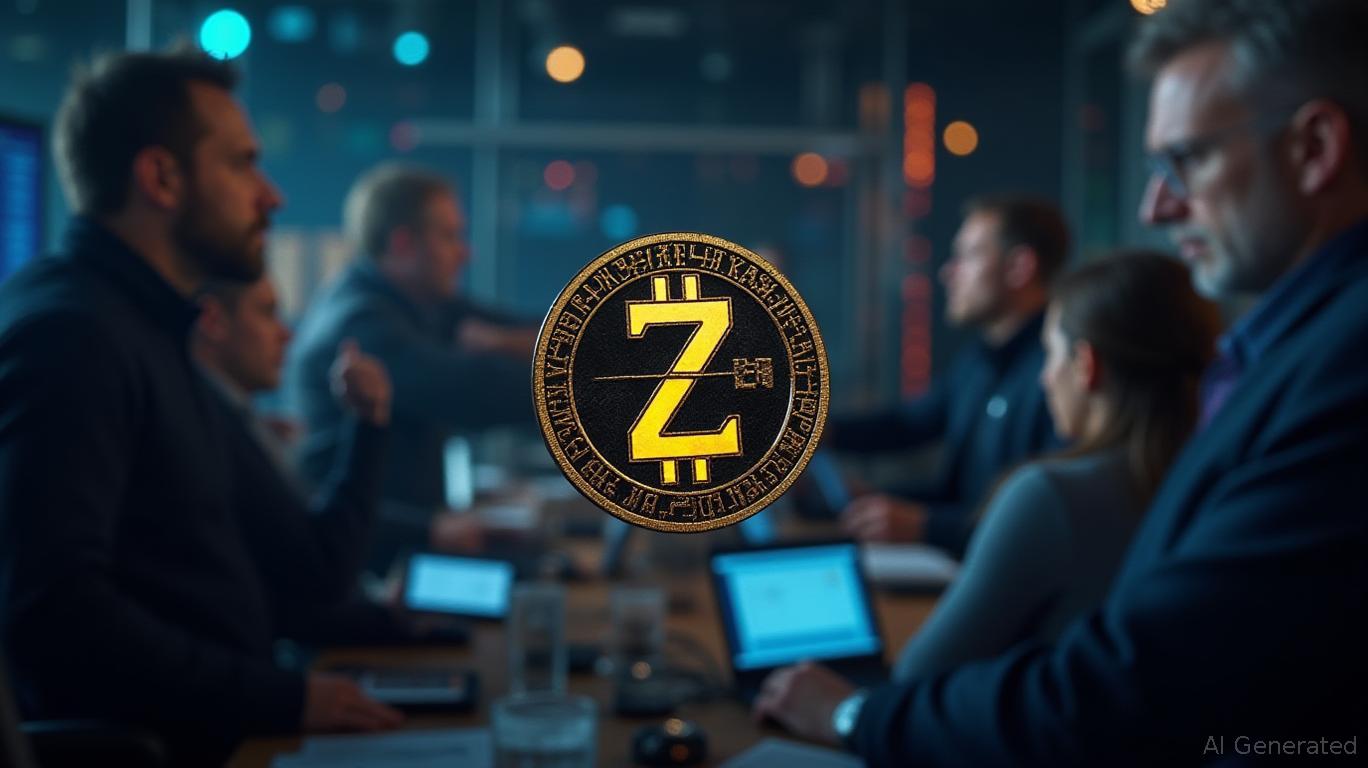U.S. and China Reach Temporary Agreement: One-Year Pause on Rare Earth Disputes Despite Continued Strains
- China and the U.S. reached a provisional trade truce, suspending rare earth export controls and reducing fentanyl-related tariffs for one year. - The agreement includes conditional pauses on new sanctions and Nexperia export bans, with annual renegotiation and lingering strategic vulnerabilities. - Lynas Rare Earths adjusted production amid uncertainty, while Nexperia's shipments resumed to ease automotive supply chain risks. - Market reactions remain mixed as the truce addresses immediate tensions but l
China has decided to postpone its planned export restrictions on rare earth minerals for a minimum of one year, making a significant concession as part of a temporary trade agreement with the United States designed to reduce friction between the two economic superpowers. This arrangement, revealed following a pivotal meeting between President Donald Trump and Chinese President Xi Jinping in South Korea, also features a 50% cut in U.S. tariffs related to fentanyl on Chinese products and a halt to new American sanctions against Chinese companies, according to a
The decision to delay rare earth export controls, a central element of the agreement, directly addresses U.S. worries over China’s dominant position in the supply of materials vital for advanced technologies such as semiconductors, electric vehicles, and defense systems. Previously, Beijing had warned it might limit exports of rare earths and related technologies, leading Trump to threaten 100% tariffs on Chinese goods, according to

Lynas Rare Earths, the leading rare earth producer outside China and based in Australia, has already modified its operations to cope with the ongoing uncertainty. CEO Amanda Lacaze mentioned that the company will "carefully manage production levels" until there is more clarity on China’s restrictions, according to a
The trade pact also resolved a crisis in the global automotive sector that began when China blocked exports from Nexperia, a Dutch semiconductor company owned by China’s Wingtech. The Dutch government had taken control of Nexperia in September over national security concerns, prompting China to stop all shipments from the firm’s Chinese plants, as
This agreement represents a tactical pause in the ongoing economic competition, with both countries maintaining significant bargaining power. The Trump administration highlighted the immediate advantages for U.S. farmers, who will benefit from renewed Chinese purchases of soybeans, and for sectors dependent on rare earths, as mentioned in the MarketMinute report. At the same time, China’s pledge to limit exports of fentanyl precursors—a major U.S. request—remains untested, with critics pointing out the absence of binding enforcement, according to the WSJ analysis.
Market response to the deal has been mixed. While the restart of Nexperia shipments and lower tariffs have brought short-term relief, experts warn that the agreement does not tackle deeper issues, such as China’s technological goals or U.S. moves to reduce reliance on Chinese supply chains, as noted in the Bloomberg report. The annual review and conditional terms highlight the agreement’s fragility, with both sides likely to return to a more confrontational stance if confidence breaks down, the WSJ analysis cautions.
Disclaimer: The content of this article solely reflects the author's opinion and does not represent the platform in any capacity. This article is not intended to serve as a reference for making investment decisions.
You may also like
BlockDAG Rockets by $435M Despite Competitor Criticism, While Shiba Inu Makes ETF Milestone
- BlockDAG's $435M presale nears 2026 listing, with founder Jason Turner countering rival attacks via transparent technical milestones. - Shiba Inu (SHIB) becomes first meme coin in U.S. ETF filing as T. Rowe Price seeks institutional exposure to altcoins. - Litecoin (LTC) rebounds to $100 amid $1.65M ETF debut, leveraging payment platform utility and low-fee microtransaction appeal. - Mantle and Aave drive DeFi growth, but BlockDAG's F1 partnerships and 10x return potential dominate pre-listing investor u

NEAR's Reduced Inflation: Sensible Adjustment or Weakening of Governance?
- NEAR Protocol slashed annual token inflation to 2.4% from 5%, bypassing a failed community vote and sparking governance debates. - The October 30 upgrade reduces new token issuance by 60 million yearly, lowers staking yields to 4.5%, and prioritizes curbing dilution. - Critics, including staking firm Chorus One, accuse the core team of undermining decentralized governance, as NEAR’s price fell 8% post-announcement. - The move mirrors strategies by Solana and Polkadot but highlights tensions between econo

"Potential for Increased Volatility as Eigen Focuses on Expanding Its Ecosystem Rather Than Token Offerings"
- Eigen Foundation clarifies EIGEN token transfers from treasury are for ecosystem grants, partnerships, and liquidity, not team unlocks or sales. - Market faces $653M+ in token unlocks (Oct-Nov 27), led by SUI ($119M) and EIGEN ($43.8M), raising volatility risks for smaller projects like GRASS and SIGN. - Analysts warn high-unlock projects face sharper price swings, contrasting Eigen's governance stability with broader market uncertainties over liquidity absorption. - Rovaren Token (RVN) introduces AI-pow

Zcash Sets New Standard for Crypto Privacy with $412 Rally and Zero-Knowledge Enhancements
- Zcash (ZEC) surged to a $412 seven-year high, driven by privacy demand, ZK upgrades, and market shifts toward zero-knowledge tech. - ZEC's $6.8B market cap now surpasses Monero and Shiba Inu, fueled by 400% October gains and 4.1M shielded tokens on Orchard protocol. - Electric Coin Co. unveiled Q4 2025 roadmap with Zashi wallet enhancements, P2SH multisig security, and Solana integrations to boost privacy usability. - Analysts highlight Zcash's optional transparency model as a compliance advantage over f
